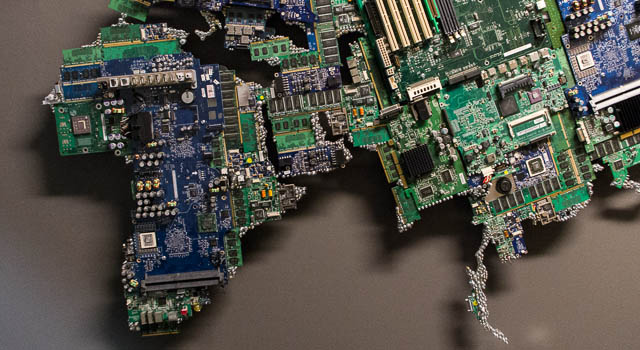
The high cost of broadband Internet access, low Internet penetration and slow Internet connectivity is holding South Africa back, according to Stanlib chief economist Kevin Lings.
In a research note released this week, Lings says several global studies have found compelling links between high-speed Internet access and significant economic growth. He pointed to research by the University of Munich, which found that after introducing broadband Internet countries achieved 2,7% to 3,9% higher gross domestic product per person. It also found that every 10% increase in broadband Internet penetration brought a 0,9% to 1,5% increase in the growth of GDP per person.
A report by the McKinsey Global Institute, released in 2011, revealed the Internet was a major driver of economic growth in major economies. It found that in the 13 countries examined by McKinsey, the Internet had “contributed 10% of their growth over the past 15 years, and 21% of their growth in the past five years”, Lings says.
The McKinsey research also showed that companies using the Web grew more than twice as fast as those with a minimal Web presence, while Internet-friendly companies created more than twice the number of jobs as companies that don’t make use of the Internet.
The Internet’s economic impact varies from country to country, even among nations at a similar level of development, he says. The Web represents 6,4% of GDP in Sweden, 5,4% in the UK, 3,1% in France and 2,7% in Canada. The role of the Internet is far lower in the Brics (Brazil, Russia, India, China and South Africa). It makes up 2,6% of GDP in China, 3,2% in India, 1,5% in Brazil, 0,8% in Russia and a paltry 0,3% in South Africa.
South Africa does not compare well with some of its African country peers either, he says. Its Internet penetration is at 17,5% of the population, lower than that in Kenya. The majority of Africa’s Internet users are concentrated in Nigeria, Egypt, Morocco and Kenya, which have a combined Internet penetration of 32,5% and account for almost 64% of all Web users on the continent.
South Africa’s Internet speeds are also staggeringly slow. The global average peak Internet connection speed has been recorded at 16,6Mbit/s in the fourth quarter of 2012, he says, while in the US the average peak connection speed is 31,5Mbit/s.
South Africa’s average peak connection speed is “a very modest and disappointing” 7,1Mbit/s in the same period. It is ranked as having only the 25th fastest Internet in Africa and is ranked 120th in the world. “It is clear … South Africa is missing out on a major growth opportunity,” says Lings. — (c) 2013 Mail & Guardian
- Visit the Mail & Guardian Online, the smart news source

